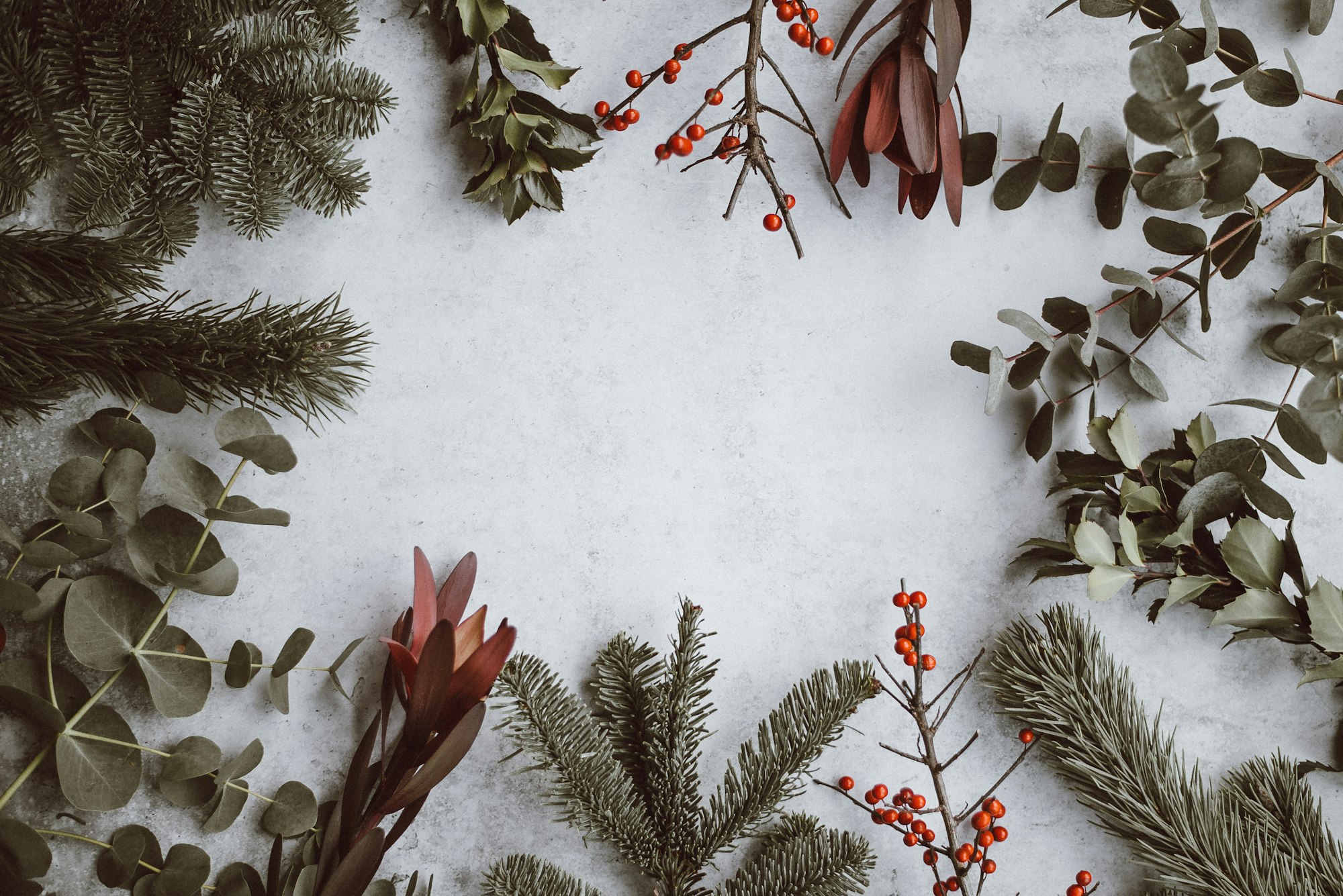
Deutsch mit Shuva: A Christmas Eve to remember
Welcome to the second article of the Deutsch mit Shuva series. This content series is aimed at helping learners of the German language in ramping up their German vocabulary in a fun way, through short stories and essays. Happy reading!
A Christmas Eve to remember
Blankets of snow on the front yard and the mutter of snow flakes on her bedroom window greeted Emma, when she drew the curtains aside, one fine Friday morning.
Her excitement knew no bounds when she gazed upon the pillows of snow on the boughs of trees and the thick sheets on the rooftop of the adjacent building.
She leaped out of bed with sheer enthusiasm and rushed to the storage room to get her sled. What could have been a better day to sled, thought she to herself.
As she hurried towards the front door, to plod up to the nearby hill, there was another surprise for her, looking forward to greeting her.
With a Tannenbaum (i.e. a fir tree) in the living room and bulbs, ornaments and straw stars on the adjacent table, one could begin to see a broadening gleam in Emma's eyes. The house seemed as laden with decorations as the city was, with snow.
Her euphoria led her to the kitchen, where she was welcomed with the aroma of Bratwurst (i.e. a type of fried or grilled German sausage, usually made out of pork) and Sauerkraut (i.e. a finely cut fermented cabbage, with a distinct sour taste) in preparation.
With Weihnachtsplätzchen (i.e. a type of cookies baked during the Christmas season), Lebkuchen (i.e. a soft and sweet cookie, similar to gingerbread, which has become a part of Germany's Christmas traditions) and Weihnachtsstollen (i.e. a fruit cake, with raisins, butter and sugar in it, which is often covered with powdered sugar) on the table, and snow outside, Heiligabend (i.e. Christmas Eve) could not have gotten any better!
Emma ran into the living room to grace the Christmas tree with ornaments. It had been a while since she had witnessed White Christmas in her life, and she was intent on making the best out of it!
After she had adorned the Weihnachtsbaum (i.e. Christmas tree) with decorations, she set out for the nearby hill, to sled away the whole morning.
The sledding was followed by the building of a snowman as well as the creation of a handful of snow angels. Emma had truly seized the day, as one would say!
"Schatz (i.e. treasure; a common nickname for children in Germany), please get ready soon. It's almost time to go to church," said her mother. It did take a while to get Emma ready for the Christmas mass, but they fortunately managed to make it in time for it.
Their return home from the mass was marked by Emma, being requested to stay in her bedroom, and to stay there patiently until the Weihnachtsmann (i.e. Santa Claus) had delivered her presents and had departed.
As soon as the presents for Emma were laid out in the living room, the lights were dimmed out and the candles on the Christmas tree were lit to provide some light upon her arrival.
"Schatz!", exclaimed her mother, while ringing the welcome bells, "you may enter the living room now." The moment that Emma was eagerly looking forward to, was finally there.
The room was treated to the sounds of Kling, Glöckchen, klingelingeling and O Tannenbaum (German Christmas carols) in the air, and the celebrations were accompanied by the allure of the snow-clad world outside, along with the coziness of the fireplace inside.
'Twas the season to come together and cherish the moment
'Twas the season to eliminate sadness and welcome happiness
'Twas the season to dance away one's worries and count one's blessings
'Twas the season to spread love around, and make the world, a happier place
The singing of the carols was followed by Emma, blowing out the candles, and turning the lights back on. It was time for the scrumptious dinner to be served.
Emma's heart was brimmed with pure bliss, and could not wait to relish the family dinner together. The Bescherung (i.e. a moment when everyone gathers around the Christmas tree, to receive and open one's presents) would probably be the cherry on the cake for her, given how the day had been for her, until then!
It was truly a Christmas Eve to remember!
With this, you have successfully reached the end of the story. Here is a quick recap of the new German words that you have added to your vocabulary:
- Der Tannenbaum (the fir tree)
- Die Bratwurst (a type of fried or grilled German sausage, usually made out of pork)
- Das Sauerkraut (a finely cut fermented cabbage, with a distinct sour taste)
- Das Weihnachtsplätzchen (a type of cookies baked during the Christmas season)
- Der Lebkuchen (a soft and sweet cookie, similar to gingerbread, which has become a part of Germany's Christmas traditions)
- Der Weihnachtsstollen (a fruit cake, with raisins, butter and sugar in it, which is often covered with powdered sugar)
- Der Heiligabend (Christmas Eve)
- Der Weihnachtsbaum (Christmas tree)
- Der Schatz (treasure; a common nickname for children in Germany)
- Der Weihnachtsmann (Santa Claus)
- Kling, Glöckchen, klingelingeling and O Tannenbaum (German Christmas carols)
- Die Bescherung (a moment when everyone gathers around the Christmas tree, to receive and open one's presents)
Congratulations to you, for your dedicated efforts to ramp up your German vocabulary. Hope you had a fun read, and see you in the next one!
Enjoy reading our work? ❤ Support us and donate ❤
📬 Subscribe to our newsletter to stay up-to-date! 👇
India2Germany Newsletter
Join the newsletter to receive the latest updates in your inbox.






